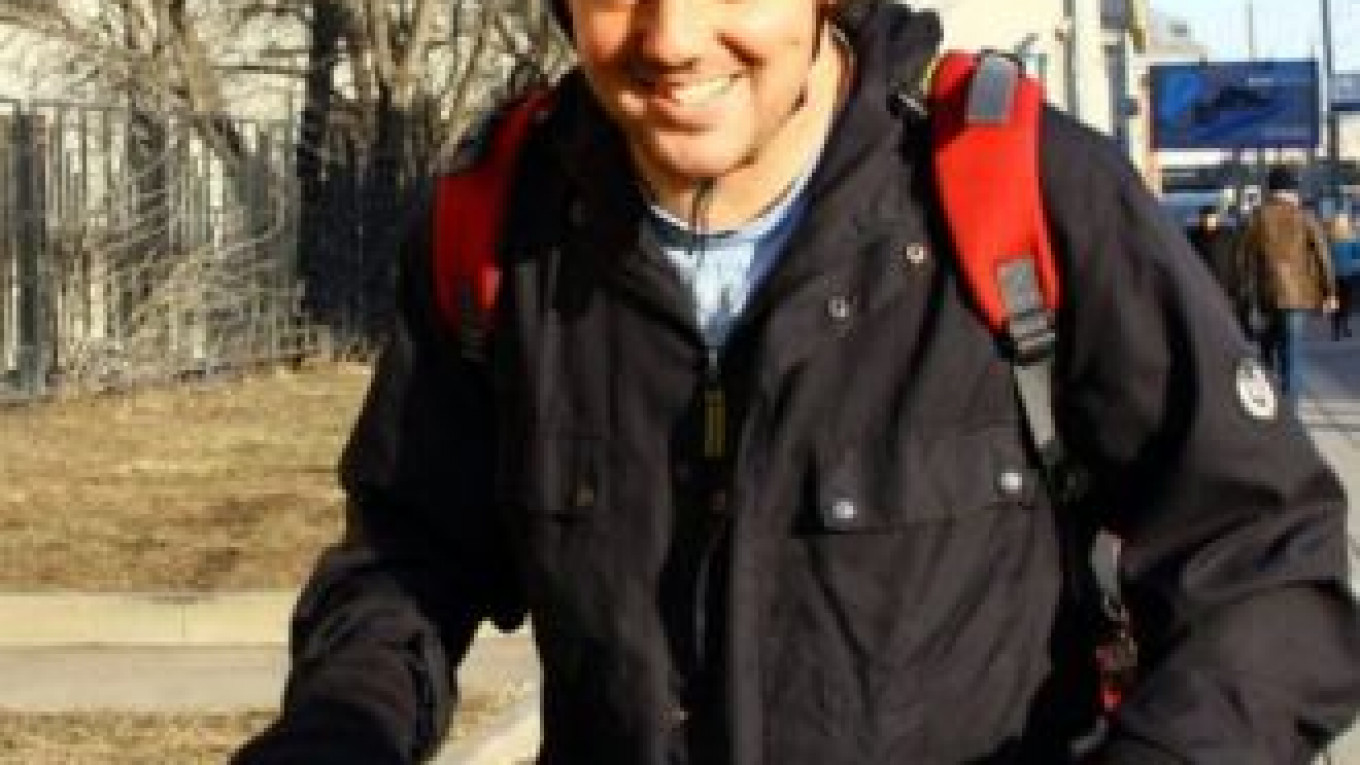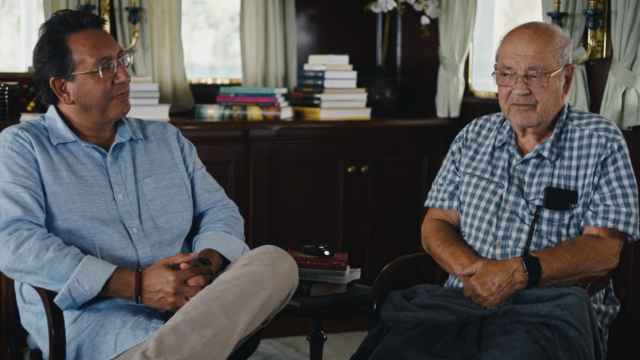ST. PETERSBURG — As soon as the last of the snow melts, dedicated cyclists across Russia wheel out their iron horses and take to the road. Although bikes are an increasingly popular means of transport and perfect for a city often paralyzed by traffic jams, there aren’t many people who would consider attempting to cover a distance of about 3,000 miles on something with only two wheels.
“I love traveling and was thinking about doing something like this when I left Russia,” said Edward Bentley, a Moscow-based journalist who has chosen an unusual way to get back home to England. “At first I thought about buying a beat-up Lada and driving it home, but then I decided on cycling. My sister told me it was a good idea and that I should do it for Cancer Research, a charity that she had raised money for by abseiling down Guy’s Hospital in London. With that, my mind was made up.”
Inspired by his sister and taking her advice, Bentley decided to combine business with pleasure and is aiming to raise £5,000 ($8,063) from his bike trip to England for the Britain-based charity Cancer Research.
“Rowena, my sister, had Hodgkin’s lymphoma, which is a type of cancer,” he said. “Survival rates are improving thanks to organizations like Cancer Research, and luckily she’s got the all-clear now. But she’s not alone, and the cancer can return, so more and more money should be going to research.”
Such methods of fundraising aren’t always received well in Russia. Bentley believes this is because “in Russia people aren’t sure where the money is going.” Charity concerts are considered to be more transparent, but even an event held in St. Petersburg at which Putin sang “Blueberry Hill” was later dogged by allegations that the children for whom it was intended had not benefited at all from the concert.
Bentley’s route began on May 10 in the northern capital. “Getting out of St. Petersburg was always going to be the worst part,” he wrote in his blog. “Russia, vast as it is, is mostly empty. Riding the R-35 made me realize that, in fact, there is nowhere for anyone to go except from Moscow to St. Petersburg and the Golden Ring. And the condition of the road was so bad that anyone wanting to take it would probably just shuffle off and find something better to do anyway.”
According to Bentley, the biggest difficulty with traveling long distances by bike is that “Russia doesn’t have this network or culture of cycling, which is a real shame. A good friend of mine explained how he had done tours near Sochi and on the Golden Ring and got these weird looks in babushka towns when they rocked up in their cycling gear. But he said it was amazing, and that really helped me.”
Bentley describes riding through often almost completely deserted villages. “A few guys were fishing and drinking down by the water, but I pitched my tent and chilled out,” Bentley wrote in his blog. “Before driving back absolutely off his face, one guy had a conversation with me that went round in circles as he insisted he was a bandit and that someone would steal my bike in the middle of the night. Some youths, he reckoned. Though all the young people seemed to have evacuated the desolate countryside already.”
As part of his EuroVelo route, Bentley’s journey will take him through nine European countries. “I’m really looking forward to the Baltics and Berlin,” Bentley said. “I’ve been to Riga for a day, but never seen the small towns and the forests. The other place is the spit at Kaliningrad. It looks absolutely beautiful, but the whole visa thing could be a nightmare.”
Bentley hopes to arrive home by mid-July, after more than two months of pedaling through Europe. “Once I hit Germany there is a much bigger network of cycle paths and cyclists,” he said. “There will be people out on the trail you can chat to, share experiences with and even tag along with - hopefully in their slip stream, by that point.”
To make a donation, please visit . Bentley’s travel blog can be read at .
A Message from The Moscow Times:
Dear readers,
We are facing unprecedented challenges. Russia's Prosecutor General's Office has designated The Moscow Times as an "undesirable" organization, criminalizing our work and putting our staff at risk of prosecution. This follows our earlier unjust labeling as a "foreign agent."
These actions are direct attempts to silence independent journalism in Russia. The authorities claim our work "discredits the decisions of the Russian leadership." We see things differently: we strive to provide accurate, unbiased reporting on Russia.
We, the journalists of The Moscow Times, refuse to be silenced. But to continue our work, we need your help.
Your support, no matter how small, makes a world of difference. If you can, please support us monthly starting from just $2. It's quick to set up, and every contribution makes a significant impact.
By supporting The Moscow Times, you're defending open, independent journalism in the face of repression. Thank you for standing with us.
Remind me later.






